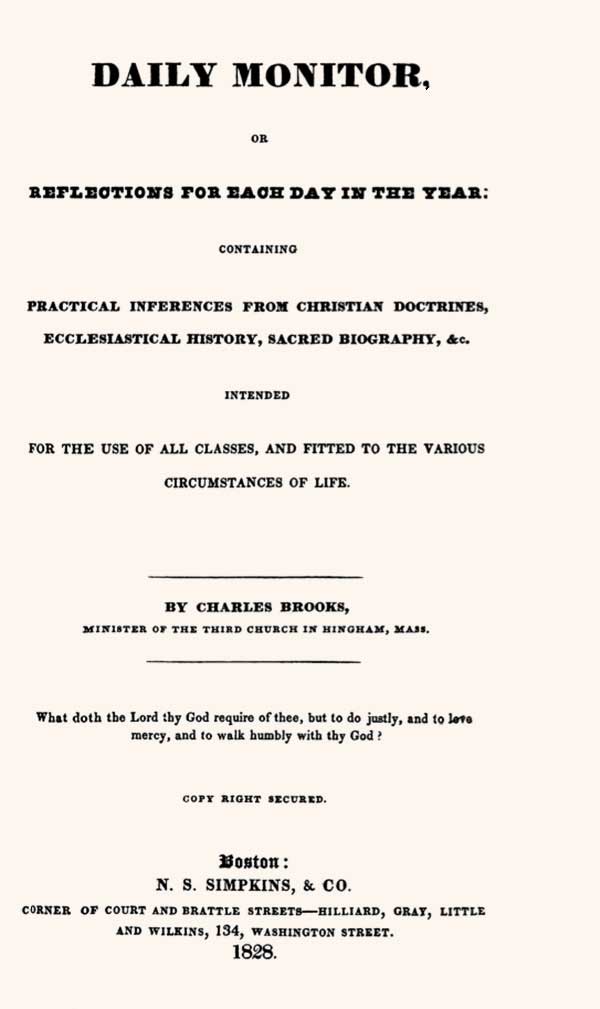Christ Looked to the Future

Title page of the Daily Monitor
Today's Devotional
Jesus said, “Father, forgive them, for they do not know what they are doing” —Luke 23:34 (NIV).
This prayer was uttered while they were nailing our Savior to the cross. There is here a moral sublimity in Christ’s fortitude, compassion and piety, which you cannot find in the philosophers, legislators, or heroes of ancient or modern days. This prayer was no momentary flight of enthusiasm. The life and death of Jesus were, both of them, wonderful and consistent. He who at the beginning of his ministry said, “Love your enemies and bless them that curse you;” now in his extreme agony on the cross, prays, “Father forgive them.”... Did ever man, before, speak, think, act and feel, like this man?
...Is it not, then, a most humiliating thought, that we who can occasionally glow with admiration and melt with tenderness at the review of our Savior’s life and sufferings, should yet so often fall short of him in our temper and actions? Can a Christian be vainglorious, proud, revengeful and unforgiving? Can the follower of the prince of peace, mingle in strife? Can the doctrines of eternal love be conjoined with envenomed rancor? And why this lukewarm attachment? these divided affections? but from the want of that entire conviction and that deep impression of gospel truth, which overawes the passions and brings every thought into subjection?
The faith of Christ sustained him....If you would see extreme misery without hope, cast your eye at the impenitent thief. Here you behold an awful contrast.
Christ’s trust in a future recompense supported him. His death showed the spontaneous tenor of his soul, and his conduct was a [fitting] close to his eventful and unspotted life.
If the Savior’s example carries no practical influences to our hearts, we are lost to the most tender sympathies of our nature....to be happy with him where he is, we must be on earth what he was. We must be, like him, steadfast to the cause of truth and piety, however unsupported and opposed— we must manifest unshaken friendship to mankind, though requited by their enmity— and adore the goodness of God, notwithstanding clouds and darkness surround his throne.— Let us prepare for sufferings; and when we enter our garden of Gethsemane, let our heartfelt prayer be, Father, not as I will, but as you will.
About the author and the source
In the preface to his Daily Monitor, Charles Brooks (1795–1872), minister of Third Church in Hingham, Massachusetts, declared his intention was “to convey heat rather than light.” He was a strong supporter of normal schools (teachers’ colleges).
Charles Brooks. Daily Monitor, or Reflections for Each Day of the Year… Boston: N.S. Simpkins and Co., 1828.





